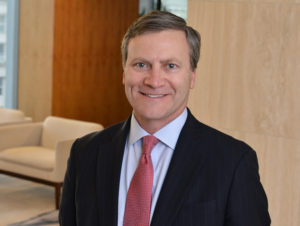Featured Expert Contributor, White Collar Crime and Corporate Compliance
 Gregory A. Brower is Chief Global Compliance Officer for Wynn Resorts. He also serves on WLF Legal Policy Advisory Board and is a former U.S. Attorney.
Gregory A. Brower is Chief Global Compliance Officer for Wynn Resorts. He also serves on WLF Legal Policy Advisory Board and is a former U.S. Attorney.
* * * *
In the latest ruling in a long-running FCPA case, the government suffered another setback with the Second Circuit once again affirming a district court’s post-jury decision gutting DOJ’s theory of liability as against a foreign national. This decision will make it more challenging for DOJ to bring FCPA charges against certain individual targets.
By way of background, back in 2013, DOJ charged Lawrence Hoskins, a UK citizen who was employed by a UK subsidiary of a French parent company (“the Company”), with violating the FCPA in connection with his involvement a foreign bribery scheme carried out by the Company’s U.S. subsidiaries. In 2014, the Company pleaded guilty and its U.S. subsidiaries entered into deferred prosecution agreements. Although Hoskins did not clearly fit into any of the categories of persons listed in the statute—officers, directors, employees, and agents of a U.S. company subject to the FCPA—DOJ alleged that he was nevertheless liable under the FCPA as a co-conspirator with the U.S. subsidiaries. Hoskins challenged that theory and the district court agreed, ruling that a non-resident foreign national cannot be held criminally liable for conspiracy to violate the FCPA unless that person is an agent of such a U.S. company or “domestic concern.” DOJ filed an interlocutory appeal and the Second Circuit affirmed and remanded (“Hoskins I”).
Given a second chance at a viable FCPA theory against Hoskins, DOJ revised its approach by arguing that the details of Hoskins’ involvement with the U.S. subsidiary did, in fact, make him an agent of a domestic concern thus allowing him to fit within the statutory list of individuals subject to the FCPA. Although “agent” is not defined in the FCPA, the parties agreed that the common law definition should apply. This theory made it to a jury trial which resulted in Hoskins’ conviction on several FCPA and money laundering counts. His motion for a post-verdict acquittal was granted and, once again, DOJ appealed.
Last month, in “Hoskins II,” the Second Circuit affirmed the district court for a second time, concluding that Hoskins was not an agent of the U.S. subsidiary for FCPA purposes because there was not enough evidence to find an explicit or implied agency relationship between the two. Specifically, the court found that the U.S. subsidiary did not have sufficient control over Hoskins to create an agency relationship, noting that it did not hire him, set his compensation, have the authority to control him, or have the authority to terminate him. Even though there was evidence that Hoskins played a role in identifying the consultants who were engaged by the U.S. subsidiary for the purpose of making the bribe payments, a majority of the three-judge panel did not consider that to be sufficient to establish that he was an agent under the common law definition.
However, unlike the unanimous (with a concurrence) opinion in Hoskins I, Hoskins II included a very strong dissent. The dissent’s first argument was that the evidence reflected Hoskins’ central role in bribing the Indonesian officials, a point conceded by the majority. Specifically, the evidence at trial showed that Hoskins followed the U.S. subsidiary’s instructions relating to the scheme and that he sought permission from the U.S. subsidiary at each step. That being the case, the dissent argued, there was enough evidence to allow the jury to find the existence of an agency relationship for FCPA purposes. The dissent further argued that if someone in Hoskins’ position cannot be held accountable under the FCPA on an agency theory, such actors will evade accountability altogether, despite having played a critical role in a bribery scheme. This, the dissent contended, could motivate U.S. companies to avoid exercising control over the employees of subsidiary companies who engage in bribery overseas.
The Hoskins II dissent also made a broader point, suggesting that the FCPA was amended in 1998 to bring the U.S. into compliance with the Organization for Economic Cooperation and Development (OECD) Convention on Combatting Bribery of Foreign Public Officials in International Business Transactions (“OECD Convention”). The dissent posited that Congress amended the FCPA to target more bad actors, not fewer. Moreover, the dissent pointed out that as the OECD is currently considering whether the Second Circuit’s decision in Hoskins I means that the U.S. is in violation of the OECD Convention, the decision in Hoskins II will not mitigate that possibility.
Whether or not the Hoskins decisions pose treaty-obligation issues for the U.S., they clearly represent a challenge for DOJ going forward, at least with a certain subset of FCPA investigations involving similar facts. As a result of these two decisions, a co-conspirator who assists a U.S. company with a foreign bribery scheme, but who is not a U.S. citizen, is not an employee or agent of the U.S. company ( as that term is interpreted by the Second Circuit), and who does not engage in any activity in furtherance of the scheme while in the U.S., cannot be prosecuted under the FCPA. Clearly, some will argue that this is exactly what Congress intended, while others, namely DOJ, will contend that the Second Circuit simply got it wrong. The final word on exactly when an agent is or is not really an agent under the FCPA may ultimately rest with the Supreme Court.
